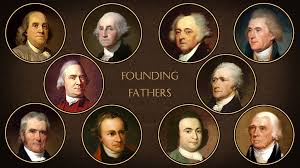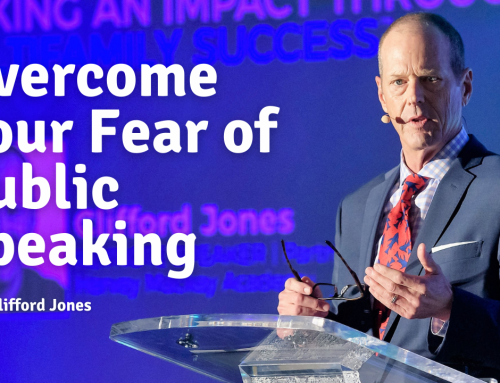
Benjamin Franklin, like most of our founding fathers, was an entrepreneur. While many of the founding fathers were entrepreneurial in the professions of law, medicine and accounting, Ben Franklin was a very successful small business owner.
Were it not for the fierce, entrepreneurial spirits of our founding fathers, would there have ever been a Tea Party or American Revolution? Probably not. That’s why I decided recently to dig into the history books and explore what it was like to be a small business owner and entrepreneur during the years leading up to and following the American Revolution. Imagine the odds against the early settlers who landed in New England. Picture the harsh reality of their existence arriving in a new land, an ocean away from the King who oppresses them to revolt and start a new nation, the greatest nation in the world today by many standards.
What were the early years of Ben Franklin’s life like, and who influenced him to become the entrepreneur and statesman he became? Here’s a brief, historical review of Ben Franklin’s track record. (Source: USHistory.org)
To begin, Ben Franklin was the son of a businessman. As you’ll see, Ben began working at a very young age (12), and the rest is history …
- Born in Boston on January 17, 1706.
- 10th son of 17 siblings.
- Grandfather was a blacksmith, father, Josiah, a candle maker/wax boiler.
- Started first job at 12 working for brother’s printing company, selling pamphlets on streets.
- In 1721, at age 15, worked for original newspaper owned and operated by brother James. (The New England Courant.)
- Circa 1722, began writing local newspaper column under the pen name of Silence Dogwood.
- In 1723, ran away from home to Philadelphia where he shined as an apprentice printer.
- Upon returning to U.S. from Britain, quit printing job, borrowed money, starting own business.
- Wife, Deborah Read, and he ran printing business and local shop.
- 1729, purchases The Pennsylvania Gazette, became most successful paper of day.
- Civic and community leader launching first library, fire department, etc.
- Franchised his printing business through 1740’s.
- Retired from business in 1749 to focus on science, experiments, inventions. (Electricity.)
- 1750’s launched esteemed political career leading up American Revolution.
It’s easy to see how Benjamin Franklin’s upbringing, and the environment within which he was nurtured, shaped him to become the small business person he became. The reality of the 18th and early 19th centuries was quite harsh compared to today’s standards. Unlike today’s world in which we see thousands of large companies and other organizations thriving with hundreds of thousands of employees, our founding father’s were all relegated to rudimentary, early educations which lead mostly to apprenticeships following the family trade or professional, always heavily influenced by the father or leader of the household.
Wisdom of Age
The older I get, the more I appreciate history. Sure, as a kid who grew up in Boston, then New Hampshire, I was immersed in the history of our founding fathers and the American Revolution. I was in Philadelphia in 1976 to celebrate the Bicentennial. As a schoolboy, I got to witness the Tall Ships sail into and dock at Boston Harbor. Every Fourth of July was an epic holiday for the small, New England community in which I grew up.
Even though I’m no Ben Franklin, I revere the values he and our other founding fathers embrace and fought for – liberty, justice, freedom. These are the same virtues shared at the core by every entrepreneur I get to serve as a strategic advisor. My father was an entrepreneur. My mother was an entrepreneur. Their parents and grandparents, all entrepreneurs or blue collar workers and farmers who migrated from northern Europe.
I used to ask my parents why our family was so steeped in entrepreneurship. They always told me stories about how my paternal grandfather could “sell a penny off a dead man’s eye.” Ben Franklin was on the streets of Boston as a boy, selling the pamphlets he had typeset and printed for his brother earlier in the day. Every entrepreneur I know is a born salesman.
Working from a young age for the family business is something I share with Mr. Franklin. My father owned and operated a hotel and restaurant when I was just a boy. I got to work as a bus boy when I was 12. Like every kid I knew back then who valued having the freedom of pocket money and a piggy bank came from hustling odd jobs, or taking a paper route, or working in the coal factory your uncle might own.
Build A Small Business Or Trade, Or Die
What choices for work and wage did most people have during the days of the American Revolution? Not many. Remember, this was before the Industrial Revolution would shift the way people live, work and travel. It was hard core to find a reasonable living especially if you were not educated. Learning to read and write was not taken for granted like it is today. Reading and writing was reserved for the elite, and millions of lesser citizens, the poor, were discouraged from reading, and even punished.
Despite the harsh environment and the steep odds against our founding fathers, look at the results, and where we are today. The founding fathers established the constitutionally-based values and principles most of still share today. Plus, look at the track record of the millions of immigrants who streamed across both Atlantic and Pacific. Hard-working people from all walks of life, willing to risk it all, board a rickety, leaky, over crowded ship, take on the mighty swell of the oceans, and pray to their Almighty Creator they would arrive safely on dry land.
Think about what it was like back then to be like the early settlers arriving here, the land of opportunity. Terrifying. Liberating. Dangerous, if not outright death-defying. And millions of us did not survive. But we died trying.
Mr. Franklin, I salute you, and all the early contributors to the way we get to live today. Without your grit, courage, tenacity, vision and labor as entrepreneurs, small business owners, community builders, revolutionary warriors and statesmen, we would likely not know the life we live today.
I always appreciate your comments, questions and suggestions here on my blog.
Want to connect with me personally? Click here.



